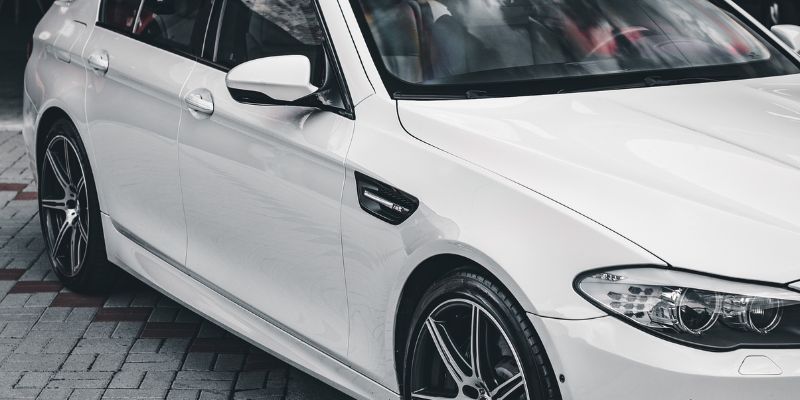Can I Put 87 in My BMW? Uncovering the Truth About Fuel Compatibility
No, you should not put 87 octane fuel in your BMW. It is recommended to use premium fuel with a higher octane rating for optimal performance and to protect the engine.
Using a lower octane fuel may result in decreased efficiency and potential damage to the engine. The choice of fuel ultimately depends on the specific model and its requirements, so it’s vital to consult the manufacturer’s recommendations. Keep in mind that using the correct fuel type can contribute to a longer lifespan and better performance for your BMW.
Understanding Fuel Octane Ratings
When it comes to refueling your BMW, it’s important to understand the significance of fuel octane ratings. Octane ratings play a vital role in determining the performance and efficiency of your car’s engine. In this blog post, we will delve into the basics of octane ratings, explain how higher octane fuels work, and discuss the effects of using lower octane fuel.

The Basics Of Octane Ratings
Octane rating, often seen at the gas pump as 87, 89, or 91, refers to the fuel’s ability to resist knocking or pinging during the combustion process. It measures the percentage of octane, a hydrocarbon compound, present in the fuel. The higher the octane rating, the more resistant it is to premature combustion, allowing the engine to operate efficiently.
Typically, regular unleaded gasoline has an octane rating of 87, while premium fuel has a higher octane rating varying between 89 and 93. It’s essential to refer to your car’s owner manual or consult with a qualified expert to determine the recommended octane rating for your BMW model.
How Higher Octane Fuels Work
Higher octane fuels are formulated to withstand higher compression ratios within the engine, which occurs when the piston compresses the air-fuel mixture. This higher compression ratio ensures a more complete and efficient combustion process, resulting in improved performance and power.
Engines designed to harness the benefits of higher octane fuels often feature advanced technologies such as turbocharging or supercharging. These technologies enhance the engine’s performance by forcing more air into the combustion chamber, requiring a fuel that can resist premature combustion. Therefore, using the recommended higher octane fuel optimizes the engine’s capabilities and unlocks its full potential.
Effects Of Using Lower Octane Fuel
While it may be tempting to choose a lower octane fuel for cost-saving purposes, it’s important to consider its potential impact on your BMW’s engine. Using a fuel with a lower octane rating than recommended can lead to several undesirable effects.
- Knocking or pinging: Lower octane fuel may cause your engine to produce a knocking sound or experience pinging during the combustion process. This noise indicates that the fuel is detonating prematurely, which can hamper engine performance and potentially cause damage over time.
- Reduced power and efficiency: The combustion process may not be as efficient when using lower octane fuel, resulting in reduced power output and lower fuel economy. Your BMW’s performance and fuel efficiency may be compromised as a result.
- Engine damage: Prolonged use of lower octane fuel can lead to increased wear and tear on engine components. The engine may experience increased heat and stress, potentially leading to long-term damage and costly repairs.
In conclusion, understanding fuel octane ratings is crucial in maintaining the optimal performance and longevity of your BMW. Ensuring that you use the recommended octane rating for your vehicle will help maximize its capabilities and protect it from potential engine issues. Always consult your owner’s manual or reach out to a professional to determine the appropriate octane rating for your specific BMW model.
Fuel Recommendations For Bmw
When it comes to keeping your BMW in tip-top shape, paying attention to fuel recommendations is essential. While it may be tempting to save a few bucks at the pump by using lower octane fuel, understanding the manufacturer’s recommendations can help you make informed decisions. In this article, we’ll explore the fuel recommendations for BMWs and the benefits and consequences associated with using different octane levels.
Manufacturer’s Fuel Recommendation
BMW takes its reputation for performance seriously, and this extends to the fuel specifications. The manufacturer recommends using premium unleaded gasoline with a minimum octane rating of 91 AKI (Anti-Knock Index) or 87 RON (Research Octane Number). This recommendation is based on extensive testing and development conducted by BMW engineers to optimize engine performance, fuel efficiency, and reliability. Using the recommended octane level ensures that your BMW’s engine operates at its best, providing the power and driving experience you expect from a luxury vehicle.
Benefits Of Using Recommended Octane
Using the recommended octane level for your BMW offers several benefits:
- Improved Performance: BMW engines are designed to extract maximum power and efficiency when fueled with the recommended octane level. By using premium unleaded gasoline, you allow the engine to ignite the fuel-air mixture optimally, resulting in smoother acceleration, improved throttle response, and overall better performance.
- Enhanced Fuel Efficiency: A well-functioning engine requires the right balance of fuel and air. When you use the recommended octane level, the engine combustion process is more efficient, which can translate into better fuel economy. Over time, this can result in savings at the pump and lower overall fuel expenses.
- Preservation of Engine Components: Using the recommended octane level helps reduce the risk of engine knocking or pinging. Knocking can cause damage to internal engine components, such as pistons and valves. By fueling your BMW with the appropriate octane, you help preserve the longevity and reliability of these important engine parts.
- Optimized Emissions: Modern BMWs are equipped with advanced emissions control systems. Using the recommended fuel octane ensures that these systems function optimally, helping to reduce harmful pollutants and keeping your vehicle in compliance with environmental regulations.
Consequences Of Using Lower Octane
While it may be tempting to use a lower octane fuel to save money, doing so can have negative consequences:
- Reduced Performance: Lower octane fuel can cause engine knocking or pinging, leading to reduced power output and slower acceleration. You may notice a decrease in overall performance and responsiveness when using a fuel with an octane rating below the manufacturer’s recommendation.
- Poor Fuel Economy: An engine that is not operating optimally due to lower octane fuel may burn fuel less efficiently, resulting in decreased fuel economy. This means you may need to refuel more frequently, offsetting any upfront cost savings from using a lower octane fuel.
- Increased Engine Wear: Engine knocking caused by lower octane fuel can lead to increased wear on internal components. Over time, this wear can affect the engine’s reliability and potentially result in costly repair bills.
- Potential Damage to Emissions Control Systems: Lower octane fuel can impact the performance of emissions control systems, resulting in increased emissions of pollutants. This not only harms the environment but may also lead to failed emissions tests or compliance issues.
Ultimately, following the manufacturer’s fuel recommendations for your BMW ensures that you are taking the best care of your vehicle. Using the recommended octane level provides numerous benefits, including improved performance, enhanced fuel efficiency, and preservation of engine components. Meanwhile, using a lower octane fuel can lead to reduced performance, poor fuel economy, increased engine wear, and potential damage to emissions control systems.
Determining Fuel Compatibility
When it comes to fueling up your BMW, it’s crucial to ensure you are using the right type of fuel for optimal performance. A common question among BMW owners is whether it is safe to put 87 octane fuel, also known as regular unleaded fuel, in their high-performance vehicles. Determining fuel compatibility requires careful consideration of various factors, including checking your BMW’s manual, considering engine modifications, and consulting with professionals.
Checking Your Bmw’s Manual
The first step in determining fuel compatibility for your BMW is to consult the owner’s manual. The manual provides valuable information regarding the recommended fuel type and octane rating for your specific model. It is essential to follow these guidelines to ensure proper engine performance and prevent any potential damage caused by using incompatible fuel. BMW takes into account the engine design, compression ratio, and other specifications when determining the ideal fuel type for each model.
Considering Engine Modifications
If your BMW has undergone any engine modifications or enhancements, it’s crucial to reevaluate the fuel requirements. Upgrades such as turbochargers, aftermarket fuel injectors, or engine tuning can significantly impact fuel compatibility. These modifications often increase the engine’s power output, requiring higher octane fuel to prevent issues like detonation or knocking. In such cases, consulting with a knowledgeable mechanic or BMW specialist is strongly advised to determine the appropriate fuel type for your modified vehicle.
Consulting With Professionals
The best way to ensure you are using the correct fuel for your BMW is to consult with professionals who specialize in BMW maintenance and performance. BMW dealerships or independent BMW specialists have the expertise and experience to provide accurate advice regarding fuel compatibility. Their in-depth knowledge of BMW models and their specific fuel requirements can help you make an informed decision and avoid potential engine problems caused by using the wrong type of fuel.
In conclusion, determining fuel compatibility for your BMW is a critical step in maintaining the performance and longevity of your vehicle. By checking your BMW’s manual, considering any engine modifications, and consulting with professionals, you can confidently choose the right fuel type for your BMW, ensuring optimal performance and peace of mind on the road.
Conclusion
To sum up, it’s important to understand the specific requirements of your BMW and use the recommended fuel octane level to optimize your engine’s performance. While it may seem tempting to save some money by using regular unleaded gasoline, using a lower octane fuel can potentially lead to engine knocking and long-term damage.
Ultimately, investing in the right fuel for your BMW will help you maintain its longevity and ensure a smooth and enjoyable driving experience. So, be sure to consult your owner’s manual or a trusted mechanic to determine the ideal fuel for your specific BMW model.








